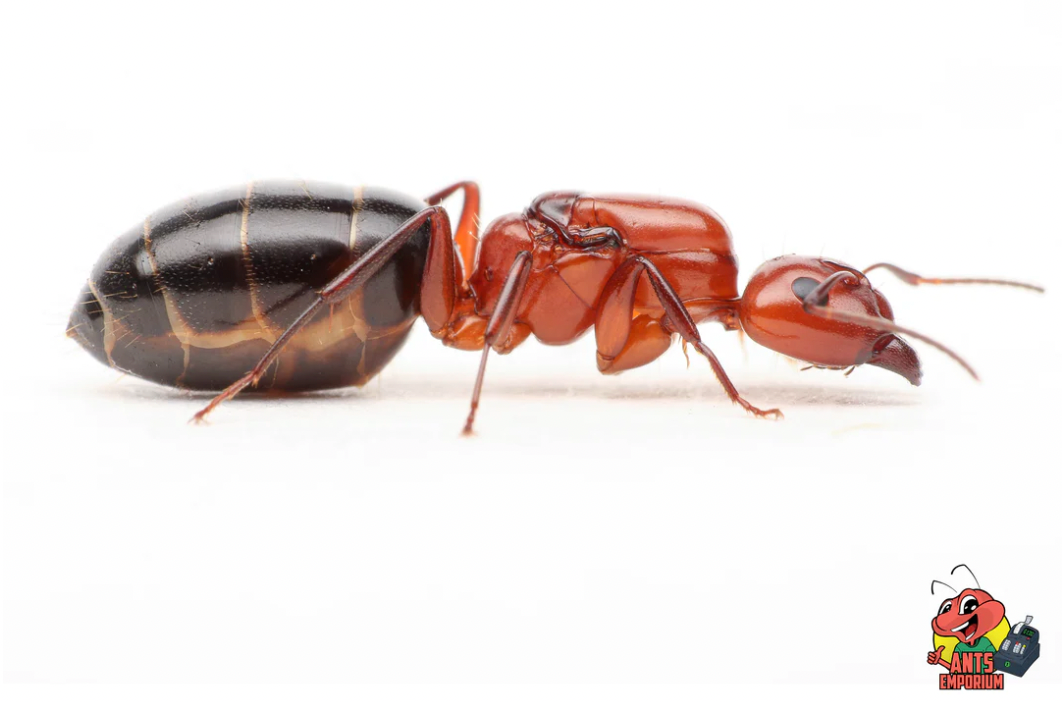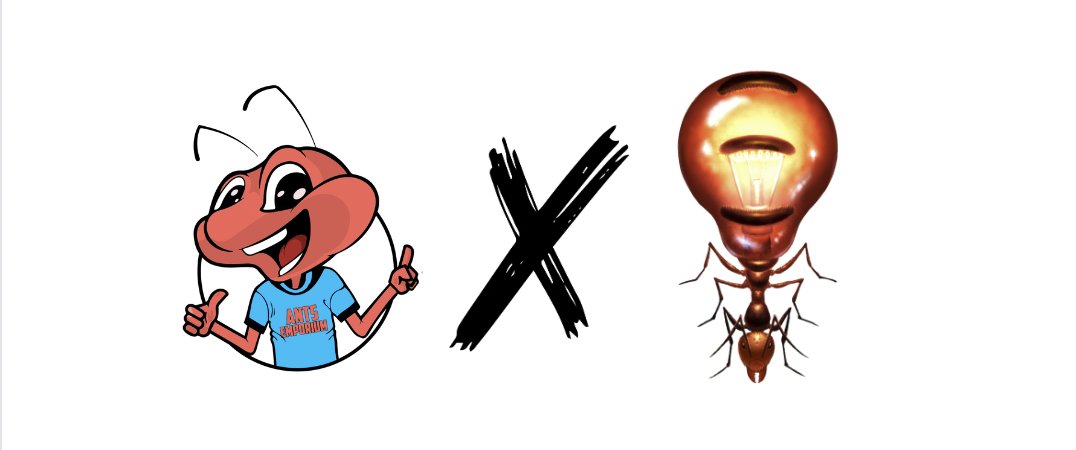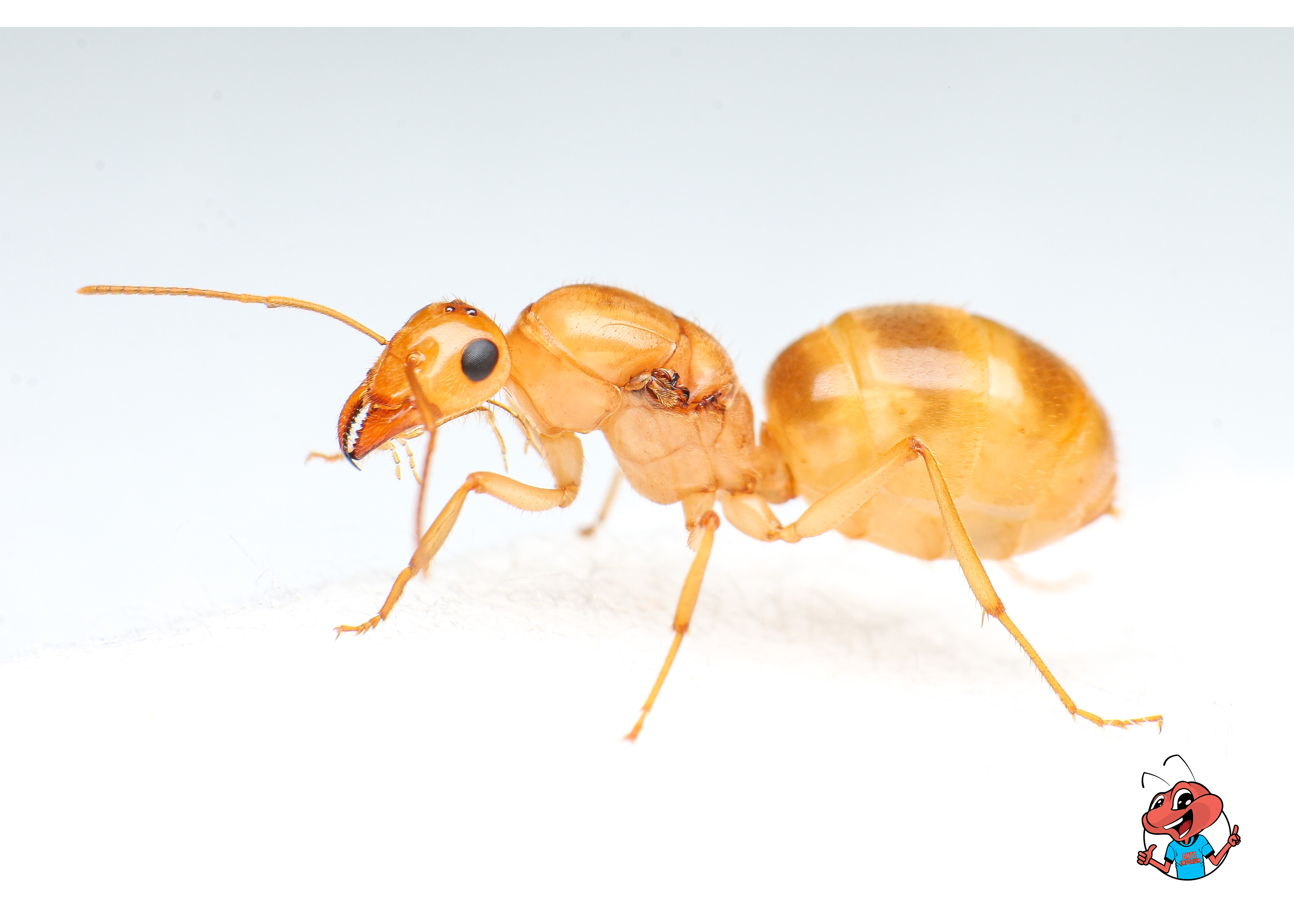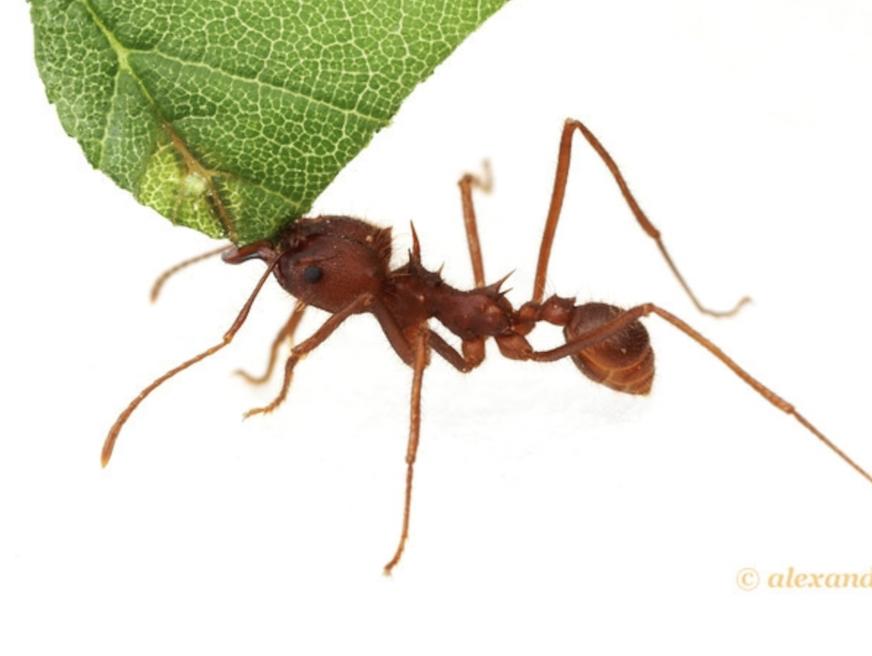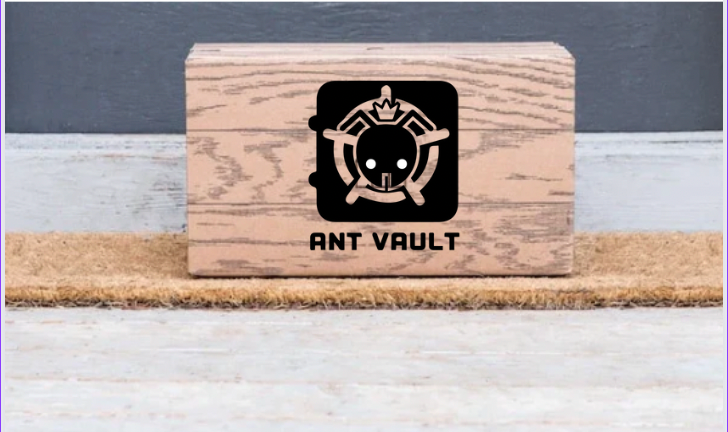Texas Bullet Ant Care Guide:
-
Housing: Texas Bullet Ants require a spacious and secure enclosure to live in. The enclosure should be at least 18x18x18 inches in size and made of glass or acrylic to allow for observation. The enclosure should have a lid that securely fastens to prevent escape. The enclosure should be kept at room temperature, between 70-80°F, and away from direct sunlight.
-
Substrate: Texas Bullet Ants require a substrate that retains moisture but also allows for good ventilation. A mixture of coconut coir, sphagnum moss, and vermiculite works well as a substrate. The substrate should be moist but not wet.
-
Nest: Texas Bullet Ants require a nest area where they can build their tunnels and chambers. A natural cork bark or a piece of wood with holes drilled in it can be used as a nest area. The nest area should be placed on top of the substrate in the enclosure.
-
Food: Texas Bullet Ants require a varied diet of insects, such as crickets, mealworms, and fruit flies. They also require a source of sugar, such as honey or sugar water. The food should be provided in small amounts every few days, and any uneaten food should be removed to prevent mold growth.
-
Water: Texas Bullet Ants require a source of clean water. A test tube or a small dish filled with water can be provided in the enclosure. The water should be changed regularly to prevent bacteria growth.
-
Handling: Texas Bullet Ants are known for their painful sting, and handling them is not recommended. If it is necessary to handle them, use tweezers or forceps and wear gloves.
-
Cleaning: The enclosure should be cleaned regularly to prevent the growth of mold and bacteria. Uneaten food and dead ants should be removed, and the substrate should be replaced every few months.
It's important to note that Texas Bullet Ants are venomous and their sting can cause severe pain and swelling. They should only be kept by experienced ant keepers who are familiar with their behavior and handling techniques. Additionally, keeping Texas Bullet Ants as pets requires a permit in some countries, and it's essential to check local laws and regulations before keeping them. It's also essential to obtain ants from a reputable source to ensure they are not illegally taken from the wild.
